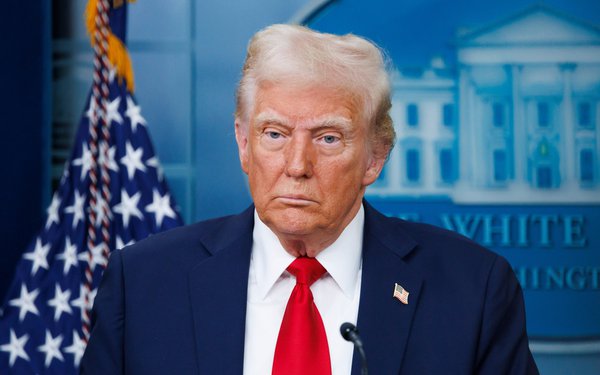
The Trump Administration may be looking to lift the
limit on TV station ownership -- where a company cannot own TV stations which collectively exceed 39% of U.S. TV households.
All this all seems predictable. But other stuff related to this
possible move seems eye-opening.
Consider the Trump administration's different perspective when it comes to businesses -- like the Federal government taking a 10% equity stake in chipmaker
Intel.
Reports say the Trump Administration via the Federal Communication Commission will lift the TV station ownership limit -- but only for independent TV station groups like Nexstar Media
Group, Sinclair Inc. and others, not for the big four broadcast TV-network based companies that also own TV stations.
Recently, Nexstar announced a $6.2 billion deal to buy Tegna, another
major TV station group -- a deal that would put the combined company over the 39% limit.
advertisement
advertisement
Following news of the deal, company execs referenced the probability of the 39% limit being lifted.
Although the Trump Administration could be looking to keep the big four TV networks under the 39% cap, NBCUniversal says the law won’t allow it.
“The answer is no. Differential
treatment of broadcast licensees based on their ownership has no basis in law or policy,” said Angela Ball, senior vice president of regulatory affairs of NBCUniversal Media, in a recent filing
with the FCC.
Other recent reports reference President Trump accusing news programming on NBC, CBS, and ABC television networks of being “fake news” -- with the suggestion that the
FCC should revoke the broadcast licenses of those TV station groups.
And if that doesn’t work, those stations should “pay BIG” for using the airwaves, per social media posts.
Without any evidence, Trump says 97% of the
stories from the big four TV network-based companies they had aired about him were "BAD STORIES" and suggested they were an arm of the Democratic Party, according to NPR.
This comes after two
Trump lawsuits were settled for $16 million, one each from Paramount Global (for CBS) and Walt Disney (for ABC).
For many this is all about putting pressure on news organizations for future
content would be more favorable for the Trump Administration or the President personally.
Analysts say this is next level stuff for media businesses -- initially believing that trying to patch
complaints/issues with Trump via minor monetary compensation would seemingly let them move on with their businesses.
It doesn’t appear that’s the case at all. Expect more legal
filings to continue.
The bifurcation of TV-media ownership between one company and another seems to be just the start. What will TV advertisers do -- if anything -- with regard to these
massive shifts?